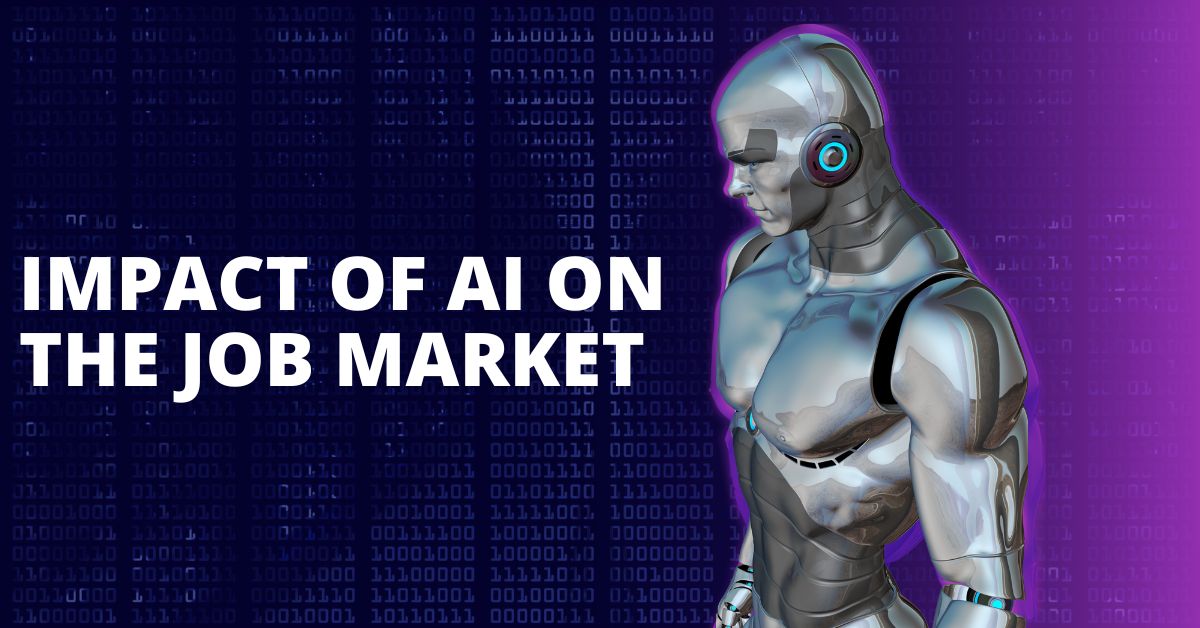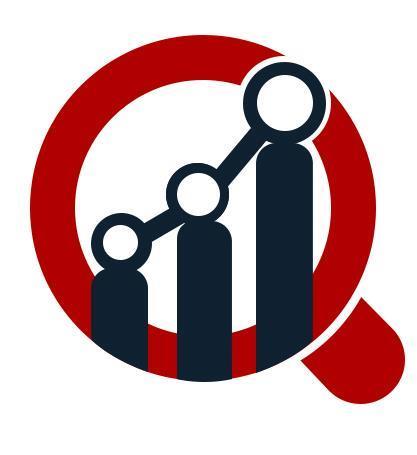In recent years, artificial intelligence has taken the globe by storm, from AI voice assistants like Siri and Alexa to current advances in predictive analytics and generative AI. Artificial intelligence is transforming how we live, work, and entertain ourselves. In short we can say that in the modern era, the world is witnessing an unprecedented revolution powered by Artificial Intelligence (AI). This technological marvel has transcended traditional boundaries and has begun to reshape various aspects of our lives, including the job market. The impact of AI on the job market is both profound and multifaceted, bringing with it a range of challenges and opportunities that demand our attention and adaptation. In this blog, we’ll explore the impact of AI on the job market.
So, buckle up and let’s get started!
The impact of AI on the job market
The impact of AI on the job market is a complex and multifaceted topic. While AI technologies have the potential to bring about numerous benefits and efficiencies, they also pose challenges and changes to the workforce. Here are some key points to consider:
Positive Impacts of AI on the job market
Automation of Routine Tasks: AI can take over repetitive and mundane tasks, allowing human workers to focus on more creative, strategic, and value-added activities. This can boost productivity and job happiness.
Efficiency and Cost Savings: AI-driven automation can streamline processes, reduce errors, and lead to cost savings for businesses. This can make companies more competitive and potentially lead to expansion and job creation in new areas.
New Job Opportunities: The positive impact of AI on the job market enhances new job opportunities. The development and deployment of AI technologies create new job roles related to AI research, development, implementation, maintenance, and support. These positions necessitate specialised knowledge and skills.
Enhanced Decision-Making: AI can provide insights and data-driven recommendations, aiding in better decision-making across various industries, which can lead to improved outcomes and innovation.
Industries most affected by AI
Artificial Intelligence (AI) has had a significant impact across various industries and sectors, transforming the way businesses operate and creating new opportunities. Here are some of the industries and sectors that have been most affected by AI:
AI has naturally had a profound impact on the technology and IT sector itself. It’s being used to optimize software development, enhance cybersecurity, improve network management, and automate various IT processes.
AI has revolutionized healthcare by enabling faster and more accurate diagnoses through medical image analysis, predictive analytics, and personalized treatment recommendations. AI-driven robotics are also being used in surgeries, and AI-powered chatbots assist with patient interactions and administrative tasks.
In the financial sector, AI is used for algorithmic trading, fraud detection, credit scoring, and risk assessment. Chatbots and virtual assistants also help with customer interactions and financial planning.
AI is transforming the retail industry through personalized product recommendations, inventory management, supply chain optimization, and customer behavior analysis. Virtual shopping assistants and AI-driven chatbots are also enhancing customer experiences.
AI-driven robotics and automation are revolutionizing manufacturing processes by increasing efficiency, reducing errors, and improving overall quality control. Predictive maintenance using AI helps prevent equipment breakdowns.
AI is driving advancements in autonomous vehicles, optimizing route planning and traffic management, enhancing driver assistance systems, and improving logistics and supply chain operations.
AI is used for optimizing energy consumption, predicting equipment failures in power plants, and enhancing energy grid management through smart systems that balance supply and demand.
AI-powered technologies such as precision agriculture, drones, and sensors help monitor crops, optimize irrigation, and predict disease outbreaks, leading to increased crop yields and reduced resource waste.
AI is used to personalize content recommendations on streaming platforms, create special effects in movies, compose music, and even generate news articles or reports.
AI-based platforms provide personalized learning experiences, adapt content to individual student needs, automate administrative tasks, and facilitate intelligent tutoring systems.
AI-powered tools assist with legal research, contract analysis, and due diligence tasks, increasing efficiency and accuracy in legal processes.
AI is used in candidate screening, employee performance analysis, and sentiment analysis to enhance HR decision-making processes.
These are just a few examples of industries and sectors that have been significantly affected by AI. As AI technology continues to evolve, its impact is likely to expand even further into new areas, bringing about both opportunities and challenges.
Navigating the Future
The transformative impact of AI on the job market necessitates a proactive approach from individuals, educational institutions, governments, and industries alike. Addressing the challenges and seizing the opportunities requires a multifaceted strategy:
Individuals need to embrace lifelong learning to keep up with the evolving demands of the job market. This involves upskilling, reskilling, and staying informed about the latest developments in AI.
Educational institutions should offer the best Artificial Intelligence Full Course and programs that equip students with the skills required to excel in the AI-driven job market.
Industries must prioritize ethical AI integration and hire professionals who can ensure the responsible development and deployment of AI systems.
Governments play a crucial role in supporting the workforce transition. Policies that promote upskilling, protect workers from job displacement, and foster innovation are essential.
Conclusion
The transformative impact of AI on the job market is a reality that we cannot ignore. While challenges such as job displacement and skills mismatch loom large, the opportunities presented by AI are equally promising. The key lies in our ability to adapt, learn, and collaborate across disciplines to create a future where AI is harnessed for the collective benefit. As AI continues to shape the world, a proactive and holistic approach will be our greatest asset in navigating the transformative journey ahead.
To equip individuals with the skills necessary to thrive in the AI-driven landscape, reputed learning platforms play a pivotal role. Reliable learning platform offers comprehensive courses that cover a wide range of AI-related topics, from machine learning and data analysis to ethical AI development. These courses empower individuals to upskill and reskill, enabling them to confidently embrace the opportunities AI presents in the job market. By participating in such programs, individuals can stay ahead of the curve, ensuring that they remain valuable contributors to the evolving workforce.
At last we can conclude that the impact of AI on the job market demands a proactive and collaborative response. By recognizing the challenges and opportunities presented by AI, and by engaging in continuous learning and skills development through platforms, we can collectively shape a future where AI enriches our lives and empowers us to excel in the ever-evolving world of work. The journey may be transformative, but with the right approach, it promises to be a journey of growth, innovation, and boundless potential.





